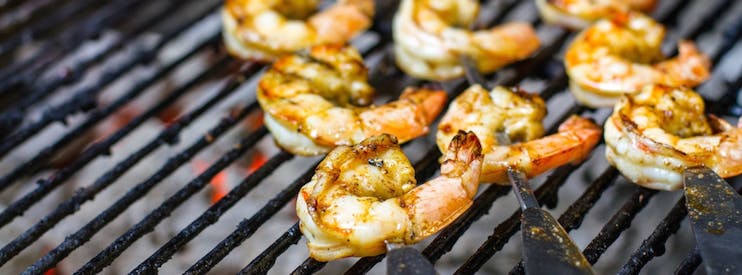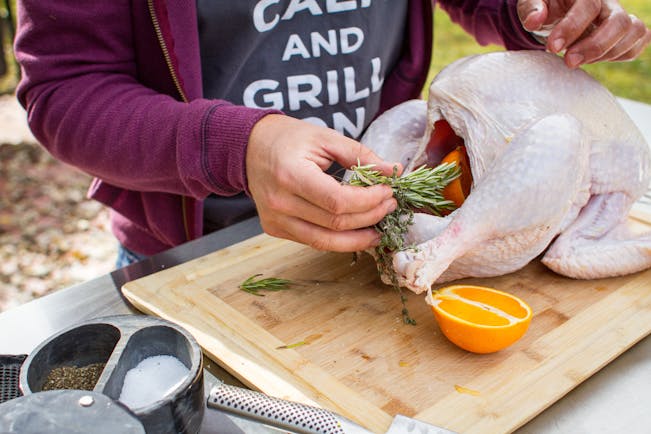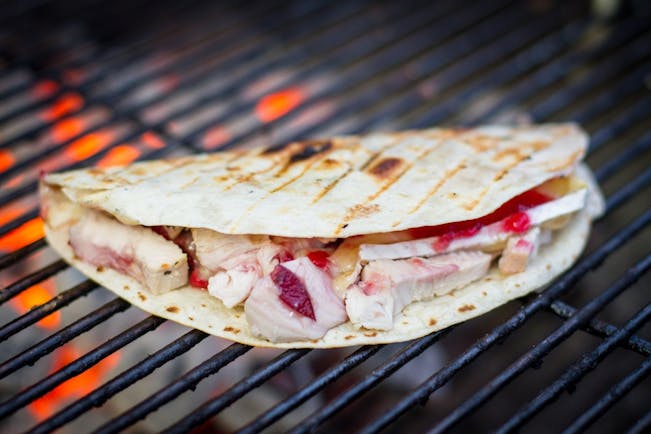Buy now, pay later. Rates as low as 0% APR financing with Affirm. Subject to eligibility. Terms Apply.
10 Useful Grilling Tips
return
Menu
I often say the heart of grilling lies in grilling techniques. What separates the master grillers from the masses is that the experts understand how to manage their grill.
Sure, recipes are important, but techniques matter most. Thus, here are the 10 essentials for better grilling. Follow these tips and you will become a true BBQ master.
1. Preheat the Grill
- Preheat your grill with the lid closed for 10 to 15 minutes.
- With all the coals glowing red, or all the gas burners on high, the temperature under the lid should reach 500F.
- The heat loosens any bits and pieces of food hanging onto the grate, making it easy to brush them off.
- Preheating your grill also helps prevent food from sticking to the grate, and gets the grate hot enough to sear properly.
2. Keep Your Grill Clean
- When bits of food have stuck to your cooking grate, and the grate is hot, clean it with a stainless steel brush. This step is not only for cleanliness. It also prevents your food from sticking.
- Note: Replace brush if any loose bristles are found on cooking grates or brush.
3. Keep The Grill Lid Down
Here are 4 important reasons why your grill lid should be closed as much as possible.
1. It keeps the grates hot enough to sear the food.
2. It speeds up the cooking time and prevents the food from drying out.
3. It traps the smokiness that develops when fat and juices vaporize in the grill.
4. It prevents flare-ups by limiting oxygen.
5. Grilling Time and Temperature
- By monitoring your time and grilling temperature you avoid overcooking your food.
- Use a timer!
- If you are grilling in a colder climate or in a higher altitude, the cooking times will be longer. If the wind is blowing hard, it will lower a gas grill's temperature and raise a charcoal grill's temperature.
6. Direct vs. Indirect Heat Grilling
- Direct heat (when the fire is directly below the food) is best for relatively small, tender pieces of food that cook in 20 minutes or less.
- Indirect heat (when the fire is on either side of the food) is best for larger, tougher cuts of meat that require more than 20 minutes of cooking.
7. Maintaining Grill Temperatures
- Our grills are designed to give you complete control over the heat inside of the grill. By having consistent, reliable heat source and proper venting, the grill can maintain low or high temperatures effectively.
- The dampers on the top and bottom of the grill control the airflow inside the grill. The more air flowing into the grill, the hotter the fire will grow and the more frequently you will have to replenish it. To slow the rate of your fuel burning, close the top vent as much as halfway and keep the lid on as much as possible. The bottom vent should be left open whenever you are grilling so you don’t kill your fire.
- Under normal circumstances, a typical charcoal briquette fire will lose about 100˚F of heat over 40 to 60 minutes. A typical lump charcoal fire will lose heat even faster.
- Gas grills have individual control knobs so that you can easily regulate the heat and create different grilling zones easily. You can easily maintain heat levels as low as 200˚F to over 550˚F easily and shift from direct to indirect in minutes.
8. Tame the Flame
- Too many flare-ups can burn your food. Keep the lid on as much as possible. This limits the amount of oxygen inside the grill, which will help extinguish any flare-ups.
- If the flames are getting out of control, move the food over indirect heat temporarily, until they die down. Then move the food back.
9. Caramelization is Key
- One of biggest reasons for the popularity of grilled food is its seared taste.
- To develop this taste for maximum effect, use the right level of heat and resist the temptation to turn food often. Your patience will allow for caramelization, or browning. That creates literally hundreds of flavors and aromas.
- As a general rule, turn food only once.
10. Lighter Fluid: No Way!
- It's a liquid product that evaporates. Who wants that, and its foul chemical fumes under their food?
- Chimney starters and lighter cubes are much cleaner and much more effective.
Related Posts

Tips & Techniques
How to Grill Shrimp Easy, Fast And Delicious

Tips & Techniques
10 Tips For How To Season A Turkey
